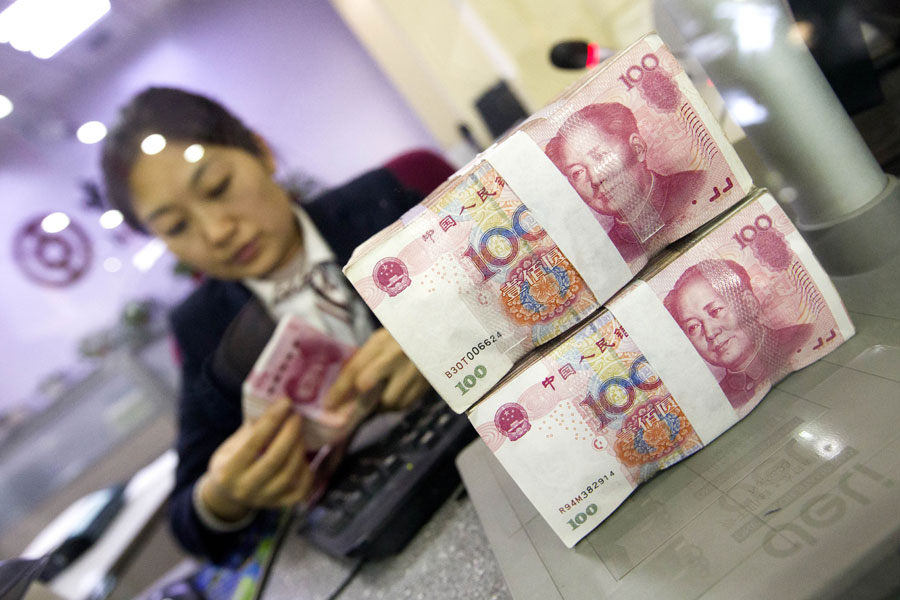Yuan seen staying strong near term


The Chinese currency renminbi is expected to stay strong against the US dollar in the short term, having risen 2.8 percent by the end of January and 6.3 percent in 2017, said Liu Gang, an analyst at China International Capital Corporation Ltd or CICC.
"There are three main reasons that caused the appreciation of the RMB," Fan Ruoying, a researcher with the Institute of International Finance, a wing of Bank of China, told Economic Information Daily.
One, the dollar meltdown. Two, China's economic strength with GDP up 6.9 percent in 2017, the first such annual rise since 2010, on the back of supply-side reforms. Three, investor optimism about the prospects for the yuan, which is encouraging them to increase their holdings of the Chinese currency.
At the ordinary citizen level, a stronger yuan would mean a Chinese consumer can buy more of imported commodities using the same amount of local currency. It will cost less to study or travel abroad.
Since yuan-denominated financial assets are more valuable, the stock market is also influenced by the currency's rise. So are sectors like aviation, shipping and supply chains, according to the 21jingji.com, an economic news website.
"In the foreseeable future, the weakening US dollar and the recovering Chinese economy will likely ensure a further appreciation of the renminbi," said Liu.
CICC has raised the target for the yuan's rise this year to 6.18 percent, he said.
The past year has also seen an end to the net outflow of overseas capital (calculated as the difference between foreign exchange reserves and foreign direct investment) during 2014-16 and a balance in the situation being restored.
According to data of the People's Bank of China, net increase in overseas institutional and personal holdings of domestic stocks and bonds was 871.7 billion yuan ($137.8 billion) in 2017.
With the continuous appreciation of the renminbi and amid economic recovery, there could be net inflow of overseas capital this year, CICC said.
Gradual completion of the Shenzhen-Hong Kong and Shanghai-Hong Kong stock connects has increased channels for overseas capital flowing into China's financial markets. The scheduled inclusion of the A shares in the MSCI Emerging Markets Index later this year will further boost such inflows.
A note from Emerging Portfolio Fund Research said the weekly net cash flow from offshore funds to red chips or H shares achieved a record high of $3.1 billion for the week to Jan 30.




































